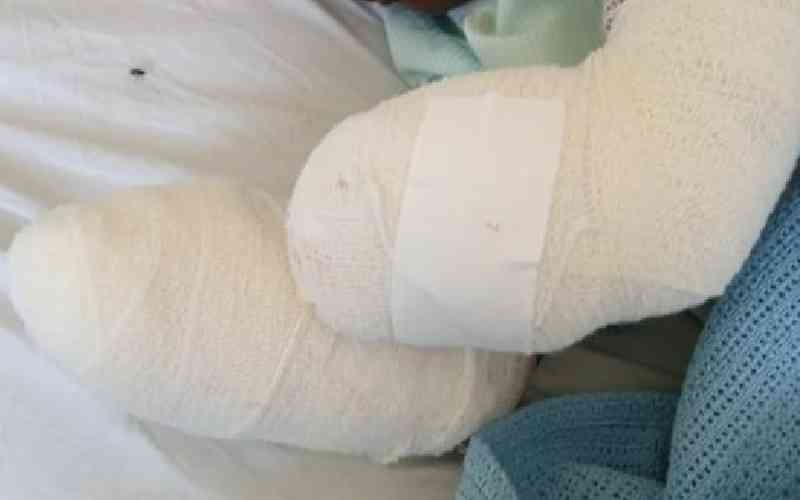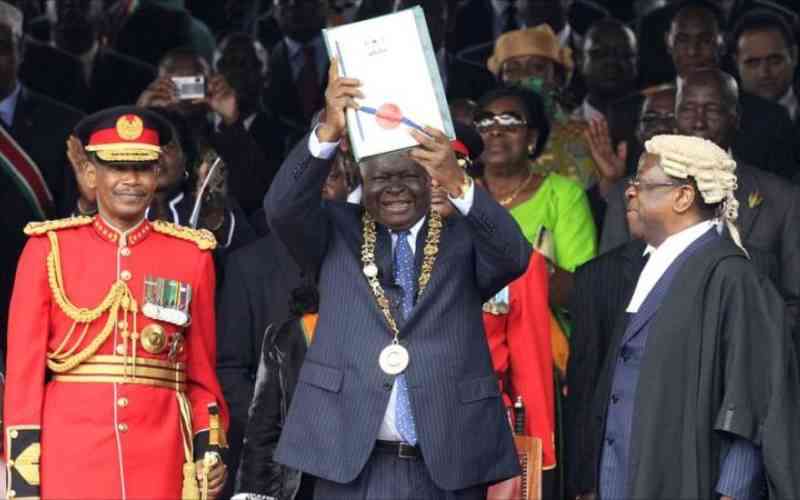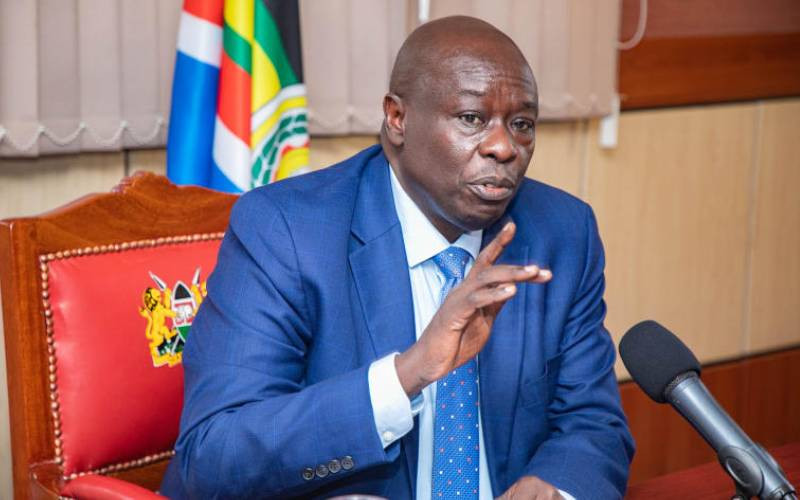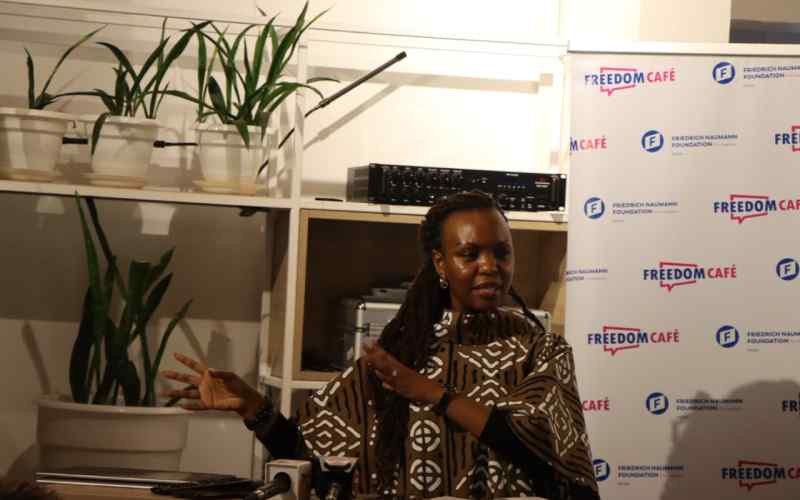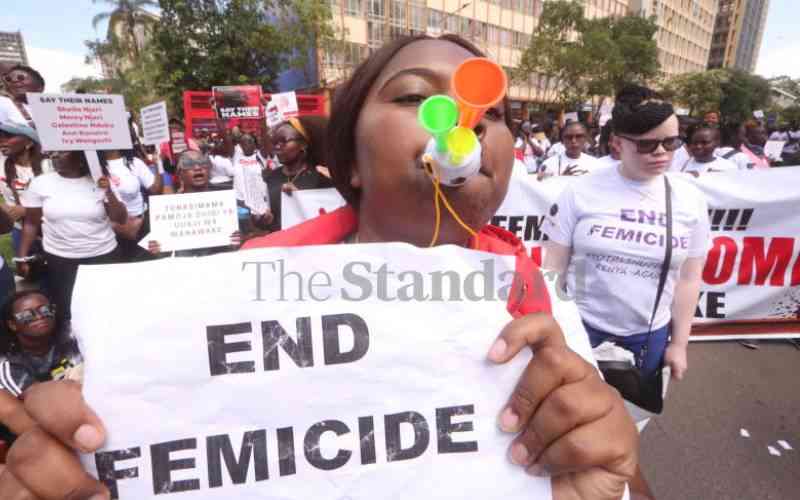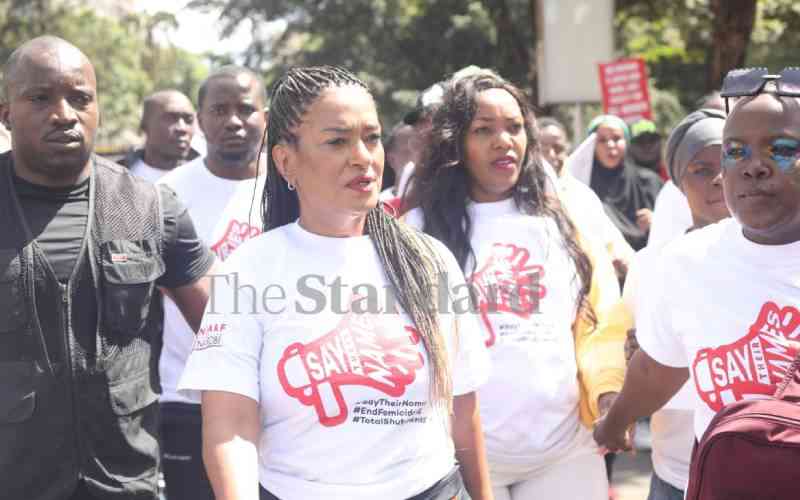
Hundreds of demonstrators took to the streets across major towns on Saturday to condemn escalating cases of femicide in Kenya.
Protestors in Nairobi, Nakuru, Mombasa, Kisumu and Nyeri, among other towns, demanded government action against the killing of women and girls.
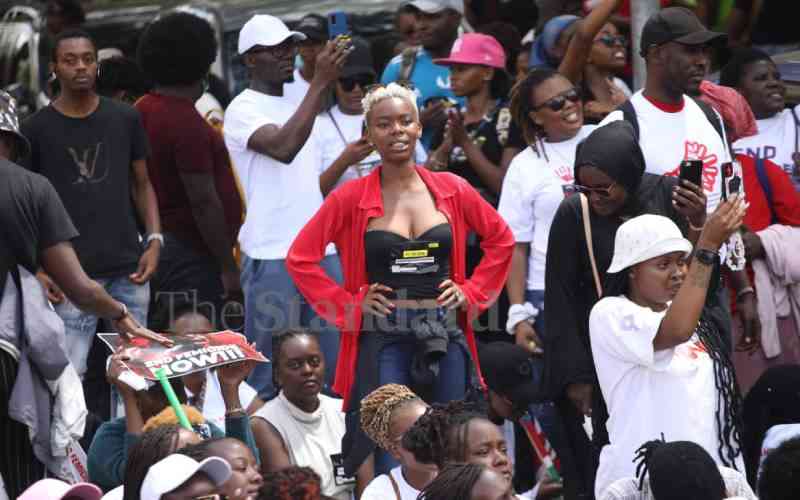
The marches follow several high-profile femicide cases, including the gruesome killings of two young women found dismembered in Nairobi short-stay apartments.
In Nairobi, the protest march began at Jevanjee Gardens and made its way through major city streets including Kenyatta Avenue and Uhuru Highway.

As they walked carrying placards and chanting slogans, the demonstrators stopped at symbolic locations like Parliament Buildings and the Supreme Court.
The rally was organised by a coalition of women’s rights groups from multiple counties, banding together in solidarity for the many victims of femicide. They marched not just to honour the lives lost, but also to call for meaningful change to prevent future tragic deaths.
“We are here because enough is enough,” said protest leader Ann Kobia to the impassioned crowd in Nairobi. “Our society must wake up to the crisis of violence against women that is taking so many precious lives.”
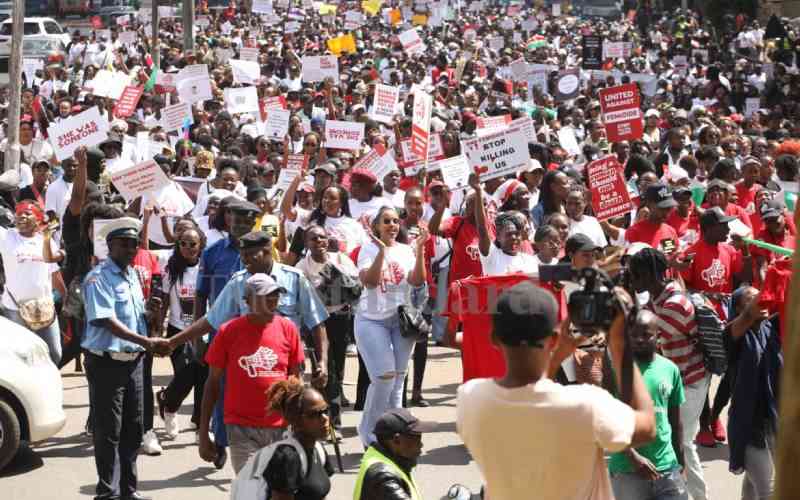
Protest leaders demanded that political leaders, including President William Ruto, publicly condemn the femicide cases. They criticised the president’s silence on the murders as deafening amidst a nationwide outcry.
“We are calling on our President and public officials to break their silence on this femicide crisis. Their lack of statements speaks volumes,” said rights activist Jane Mutua.
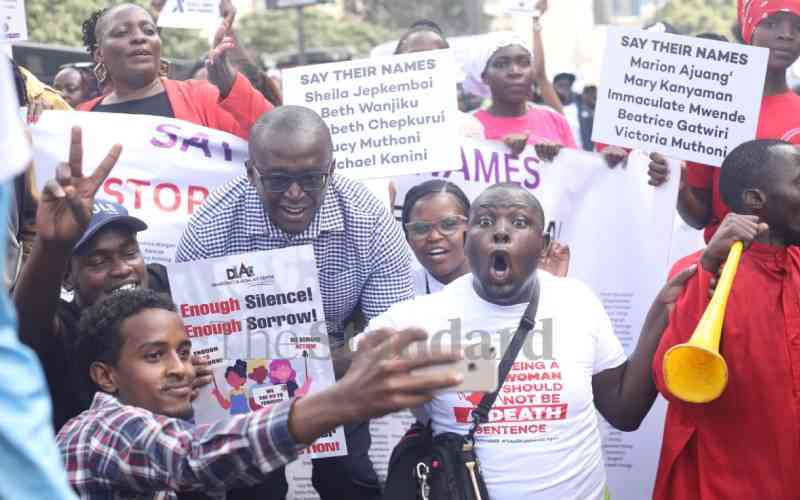
She emphasised that the government must address the rising threat to Kenyan women with immediate action. Other protest speakers urged President Ruto and top politicians to provide moral leadership against gender-based violence.
Stay informed. Subscribe to our newsletter
They also called for accountability and swifter justice for both recent victims and past unsolved cases. They urged the government to classify femicide as a distinct crime, declare a national emergency over the killings, and strengthen laws.
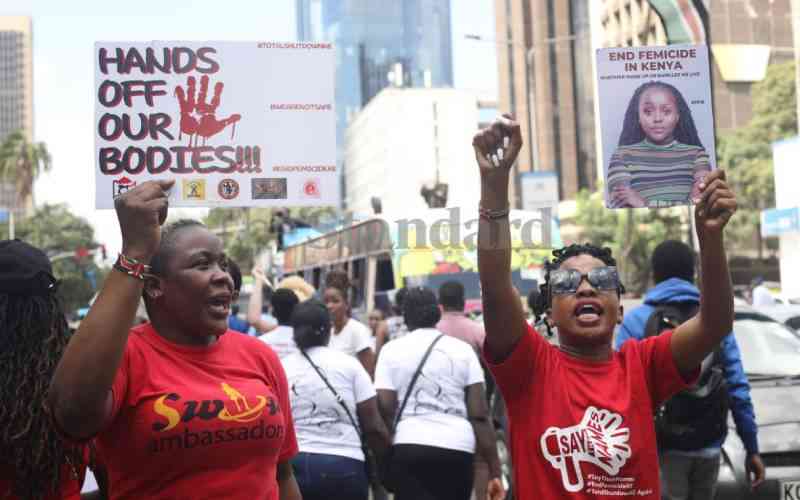
“We will no longer normalise the murder of our sisters, daughters, and mothers,” said leading activist Ann Wanjiku at the Nairobi march. She pointed to culture change as also being necessary to combat violence against women.
The nationwide demonstrations channelled public outrage over the loss of lives as protest leaders stressed the rallies are the start of a long-term movement for substantive change in protecting Kenyan women and girls.

A 2022 survey found one in three Kenyan women endure physical violence in their lifetimes. From 2016 to 2023, over 500 femicide cases were recorded by Amnesty International.
In Kisumu, residents urged the government to declare femicide a national crisis. Civil Society Organisation Network coordinator Betty Okero said women’s right to consent should be respected.
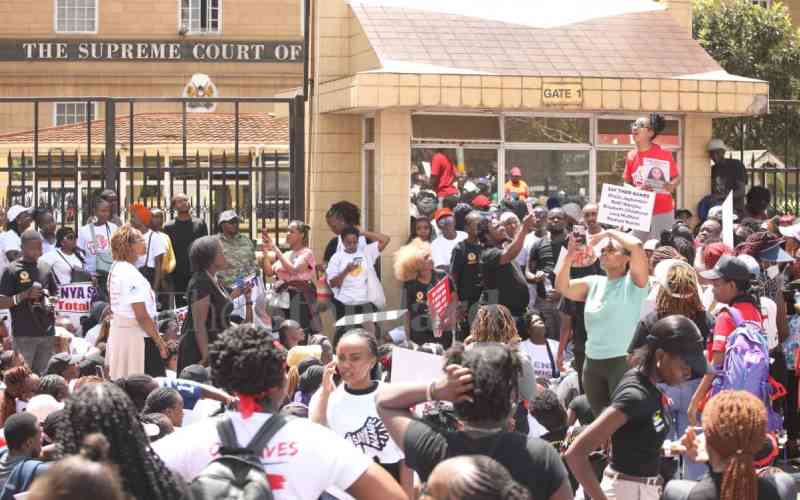
“Being a woman is not luxury, neither is it a privilege, we’re here by right. It’s our right to exist as women as female in all our colorful identities. To be in a relationship and say no is not a license to kill, to brutalise, to dehumanise,” Okero said.
[Additional reporting by Clinton Ambujo and James Omoro]
 The Standard Group Plc is a
multi-media organization with investments in media platforms spanning newspaper
print operations, television, radio broadcasting, digital and online services. The
Standard Group is recognized as a leading multi-media house in Kenya with a key
influence in matters of national and international interest.
The Standard Group Plc is a
multi-media organization with investments in media platforms spanning newspaper
print operations, television, radio broadcasting, digital and online services. The
Standard Group is recognized as a leading multi-media house in Kenya with a key
influence in matters of national and international interest.
 The Standard Group Plc is a
multi-media organization with investments in media platforms spanning newspaper
print operations, television, radio broadcasting, digital and online services. The
Standard Group is recognized as a leading multi-media house in Kenya with a key
influence in matters of national and international interest.
The Standard Group Plc is a
multi-media organization with investments in media platforms spanning newspaper
print operations, television, radio broadcasting, digital and online services. The
Standard Group is recognized as a leading multi-media house in Kenya with a key
influence in matters of national and international interest.



